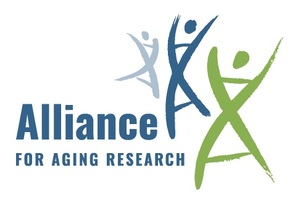Ahead of an Imminent Medicare Coverage Decision, New Morning Consult Survey Shows More than 2/3 of Americans Support Broadening Access to a Less-Invasive Heart Valve Disease Treatment for Rural Communities
Older rural adults cite appointment availability, insurance coverage, distance of travel, wait times, and cost of travel as top barriers to accessing large city hospitals for their treatment
WASHINGTON, June 17, 2019 /PRNewswire/ -- Ahead of a final decision from the Centers for Medicare & Medicaid Services (CMS) that may continue to limit Medicare coverage for a heart valve disease treatment called transcatheter aortic valve replacement (TAVR), a new survey shows that Americans support expansion of access to the procedure for rural patients.
The new Morning Consult poll, commissioned for the Alliance for Aging Research, sampled a nationally representative group of 1,995 registered voters and an oversample of 500 rural adults ages 65+, and found that more than two-thirds (69%) of Americans across every demographic–including gender, age, income, and community population density–agree that it is important to expand access to TAVR to rural communities. Among rural adults over age 65, support climbs to 81%.
Compared to open-heart surgery, TAVR allows patients to wake up just a few hours later and be discharged from the hospital within a few days. Not surprisingly nine in ten adults who voiced an opinion in the survey, said they would be more likely to choose TAVR for themselves over surgical aortic valve replacement (SAVR).
"These results remind us that we cannot forget the difficulties that older, rural Americans face in accessing healthcare," notes Susan Peschin, MHS, President and CEO of the Alliance for Aging Research. "Policy decisions that require individuals to travel long distances to receive an FDA-approved treatment are not in the patient's best interest. After seven years of limited access in order to collect more evidence on TAVR, it's time for CMS to widen coverage to all Medicare beneficiaries the agency is changed to serve."
The survey also found that:
- One in three rural adults and 36% of rural adults age 65+ find it difficult to access large city hospitals. These individuals reported that appointment availability, insurance coverage, distance of travel, wait times, and cost of travel are the top barriers to accessing large city hospitals for treatment.
- Even when transportation is feasible, patients prefer local hospitals. Familiarity with the doctor (83%) and hospital (82%) impact older rural adults the most when deciding where to seek surgical care, followed by distance to preferred care (65%), physical ability (57%), availability of transportation (55%), reliance on caregiver for transportation (49%), and cost of travel (45%).
TAVR is a minimally invasive treatment for severe symptomatic aortic stenosis. Aortic stenosis is one of the most common types of heart valve disease, and it can be debilitating, costly, and deadly. Left untreated, the prognosis for severe aortic stenosis is dire: 50% of patients die two years after symptoms develop and only 20% may be alive at five years. Worse, more than two thirds of people with it are never diagnosed or treated, particularly minorities and rural Americans.
Unfortunately, strict Medicare coverage requirements, limit access to TAVR. Greater than 90% of TAVR procedures are performed in urban, teaching hospitals, and 78% of patients served by these hospitals are in higher income zip codes. Less than 5% of essential hospitals that fill a safety net role in their communities offer the procedure.
To learn more about the survey visit www.agingresearch.org/TAVRaccesssurvey. To read more about the position of the Alliance and the 15 other organizations that submitted comments to CMS regarding the pending decision, go to www.agingresearch.org/TAVRNCD.
About the Alliance for Aging Research:
The Alliance for Aging Research is the leading nonprofit organization dedicated to accelerating the pace of scientific discoveries and their application to vastly improve the universal human experience of aging and health. The Alliance was founded in 1986 in Washington, D.C., and has since become a valued advocacy organization and a respected influential voice with policymakers.
Contact: Jim Bowers
[email protected]
SOURCE Alliance for Aging Research

Related Links
WANT YOUR COMPANY'S NEWS FEATURED ON PRNEWSWIRE.COM?
Newsrooms &
Influencers
Digital Media
Outlets
Journalists
Opted In





Share this article